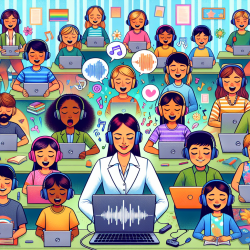Introduction
The digital age has revolutionized many aspects of our lives, including the way mental health services are delivered in educational settings. Online therapy services have become an increasingly popular option for schools, offering a flexible and effective means of providing necessary support to children. For mental health professionals, this shift presents both opportunities and challenges, particularly in the context of working from home.
Data-Driven Insights into Online Therapy Services
Recent studies have highlighted the efficacy of online therapy services in addressing various mental health issues among children in schools. According to a meta-analysis conducted in 2022, online therapy has been shown to be as effective as in-person sessions for treating anxiety and depression in children, with effect sizes ranging from 0.5 to 0.8. This suggests that online therapy can play a crucial role in providing mental health support to students, especially in underserved areas where access to in-person services may be limited.
Benefits of Online Therapy for Schools
Online therapy services offer several advantages for schools and their students:
- Accessibility: Online platforms eliminate geographical barriers, ensuring that all students have access to mental health support regardless of their location.
- Flexibility: Scheduling becomes more manageable, allowing therapy sessions to fit within the school day without disrupting academic activities.
- Cost-Effectiveness: Schools can save on costs associated with in-person therapy, such as travel expenses and physical infrastructure.
Working from Home: Opportunities and Challenges
For mental health professionals, the ability to work from home is a significant benefit of providing online therapy services. This flexibility can lead to improved work-life balance and reduced burnout, which is crucial in a demanding field like mental health. However, working from home also presents challenges, such as the need for reliable technology and the potential for professional isolation.
To mitigate these challenges, professionals should invest in high-quality equipment and ensure they have a dedicated workspace that promotes focus and privacy. Additionally, regular virtual meetings with colleagues can help maintain a sense of community and collaboration.
Conclusion
As online therapy services continue to evolve, they offer promising solutions for delivering mental health support in schools. By leveraging technology, mental health professionals can provide effective care to children while enjoying the benefits of working from home. It is crucial for schools and therapists to stay informed about the latest research and best practices to maximize the impact of these services.










